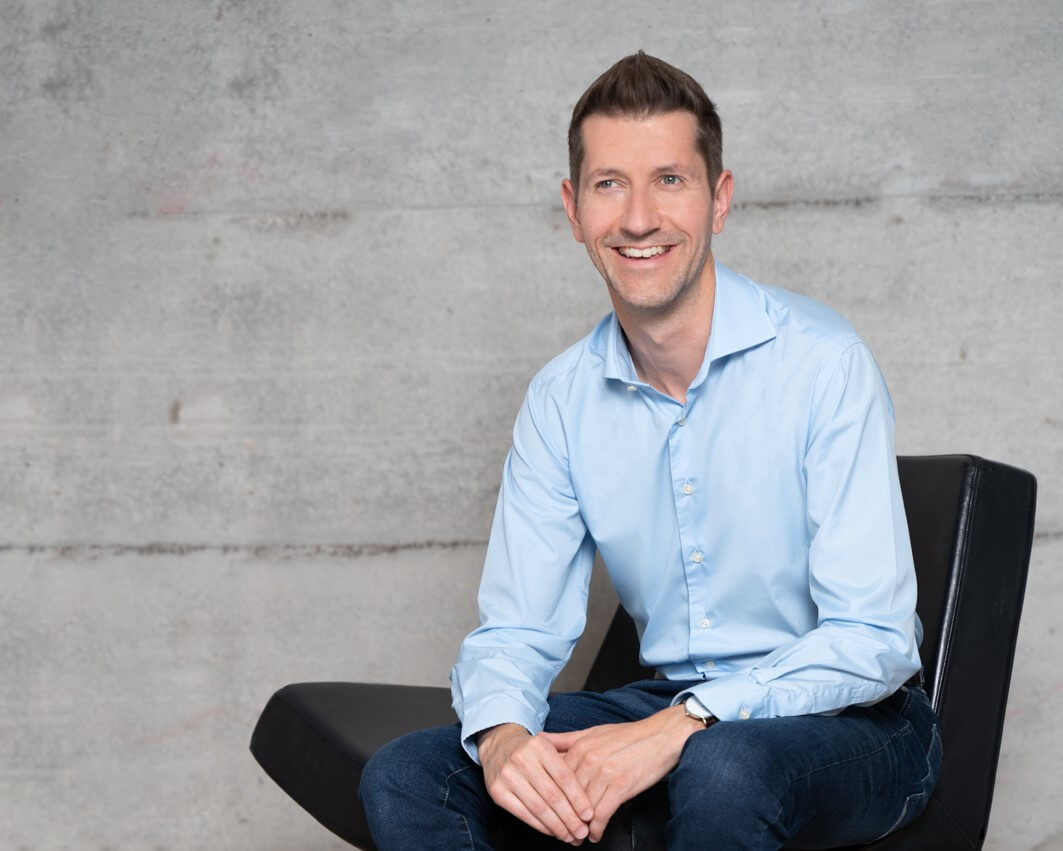Daniel Flury joined us in August last year as a Senior Consultant in the Quality team. In his Consultant Spotlight, Dani shares his journey from draftsman to engineer, his experience as a mature student, and his passion for tennis. Read his full interview below…
Why do you work in the MedTech industry?
This is easy for me to explain! As a child, I suffered from asthma and was very often in hospitals receiving regular injections. After two years of having the condition, a new drug product was launched which allowed me to grow out of my asthma and see first-hand how the medical industry impacts people’s lives for the better. I was also fascinated by the clean, scientific medical equipment – so even when it came to dentist appointments, I was always quite excited to sit in the fancy chair and be surrounded by the interesting tools!
Now as an adult, and an engineer, I enjoy how interesting and exciting the MedTech area is. And most importantly, I get to develop something through my work that’s meaningful. It’s an industry that allows you to serve patients by helping to improve their health.
How did your journey to engineering begin?
When I was young, I had good drawing skills, so it was quite clear that I wanted to use this in some way. I started my working life with quite a traditionally Swiss move of taking an apprenticeship as a draftsman. Of course, at that point in time I didn’t really understand what it meant to be a draftsman from a technical perspective, but during my four year apprenticeship I went from drawing by hand, to CAD, to learning what it means to design machines.
The apprenticeship was at Müller Martini, a company that produces plants for the newspaper industry. We made the equipment for newspaper publishers that helped to cut, fold, and transport as part of the newspaper production. It was interesting and practical work covering constructional aspects as well as a workshop internship where I learnt manufacturing processes like milling and turning. My time there certainly gave me some broad experience.
After the apprenticeship I worked for the same company for three years. As a draftsman, I would receive all the machinery components from the team of engineers to create the drawings for the workshop to then proceed with manufacture. I was fortunate that the engineers were very kind and would allow me to develop some smaller easier parts, so I was able to experience creating my own designs. This exposure to machine design inspired me to move into engineering.
I began my engineering education at the age of 25, at the University of Applied Sciences in Brugg. The first few semesters were theory-intensive – lots of maths and physics, and not what I was expecting. But in years two and three the course content started to focus more on procedures used in industry – this was closer to what I’d been so interested in as a draftsman, and in the last year I enjoyed the focus on designing and manufacturing plastic parts with injection moulding.
Did being a “mature” student affect your university experience?
As a mature student I had to complete an entry exam involving a course that improved my skills in maths, physics, German, and English. This took me two years, during which I attended classes twice a week in the evening, whilst I worked as a draftsman during the day. It was a lot of work, but passing the test was one of the best feelings I’ve ever had!
Even though I started university at 25, age is just a number. Being 25 or 20 at university, my classmates and I still had the shared experience of our studies, and of course the reliance on our parents for accommodation and meals (which I greatly appreciated!). University was a great time of my life and I have ongoing friendships from those fun days.
One of the things I liked the most about my time at university was that, as a student, you are responsible for your own success. If you don’t prepare for a test, you will fail. This sense of responsibility helped me learn to focus, and to prioritise the areas that I excelled in.
I’m grateful that my education opened a lot of doors – one of which was my first role as a mechanical engineer at Zühlke.
What do you consider as some of your career highlights?
One of the big advantages of working at Zühlke was that I had the chance to work for several different companies, whilst in-house as part of a team. It was here I had my first contact with MedTech companies, working on developing devices, plants, and machines for companies like B. Braun and Disetronic. Being risk-based, and finding the following of procedures quite natural, I quickly discovered that a regulated field like MedTech fit quite well with my “DNA”! And of course, having a focus on devices and the benefits they provide for users aligned with my need for meaningful work.
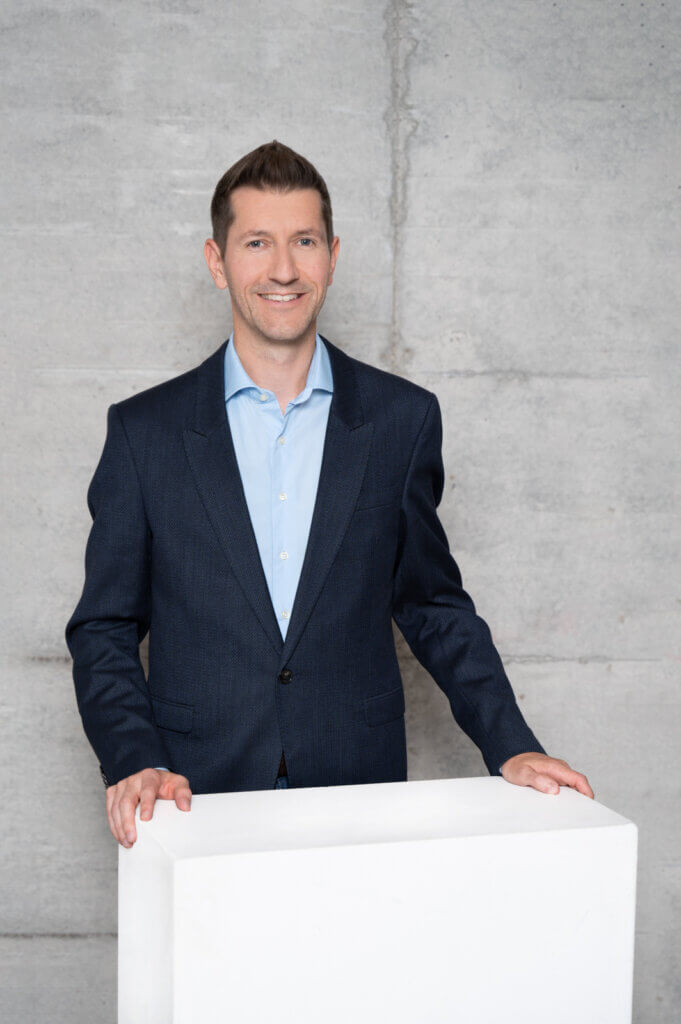
When I started at Zühlke, I had one particularly difficult project which I had to execute more or less by myself. The project involved designing a soft daily contact lens prototype for the production line. After production we had to clean the mould, and for that I was responsible for developing and manufacturing a prototype for the washing machine for the tool. The project took just six months, but during this time I had to design the prototype, purchase the necessary materials, assemble the part, and manage submissions. I worked long hours, but the hard work was worth it. The prototype worked from the beginning and the customer was very satisfied. I learnt so much on this project because I had to make so many decisions by myself – which isn’t often the case in MedTech.
After about seven years at Zühlke I wanted to delve deeper into the MedTech environment. I decided to move to Medela and became a project manager responsible for negative pressure wound therapy pumps. The role at Medela gave me the opportunity to collaborate with the complete range of departments from quality, to regulatory, to production.
A standout highlight for me at Medela was regarding a negative pressure wound therapy pump which is now on the market. I was responsible for its compliance, and whilst the project had many highs, it also presented numerous challenges. Whilst I was never the best student in the class, I do have a good connection with people which helps me a lot in the working environment. The team really came together to overcome the failures and achieve the successful registration of the device – this sense of teamwork was really memorable.
How did you find yourself working at Congenius?
After eight years at Medela it was time for a new challenge again. My girlfriend had worked with Jörg at Zühlke, so that was the initial connection with Congenius. Every Christmas Jörg sends his customers greetings cards, and so when I was looking for a new opportunity that year’s card particularly caught my eye. The company looked interesting, so I checked whether there were any job opportunities, and here we are!
How do the creative and regulated sides of your personality work together?
My personal life has structure if absolutely necessary, but in my leisure time I try to avoid too much structure to balance my personal and professional life.
In my spare time, I play a little piano just for myself, learning songs from hearing them rather than reading music. I also enjoy being outdoors – either walking, hiking, or skiing, and I love travelling as a means to meet different types of people.
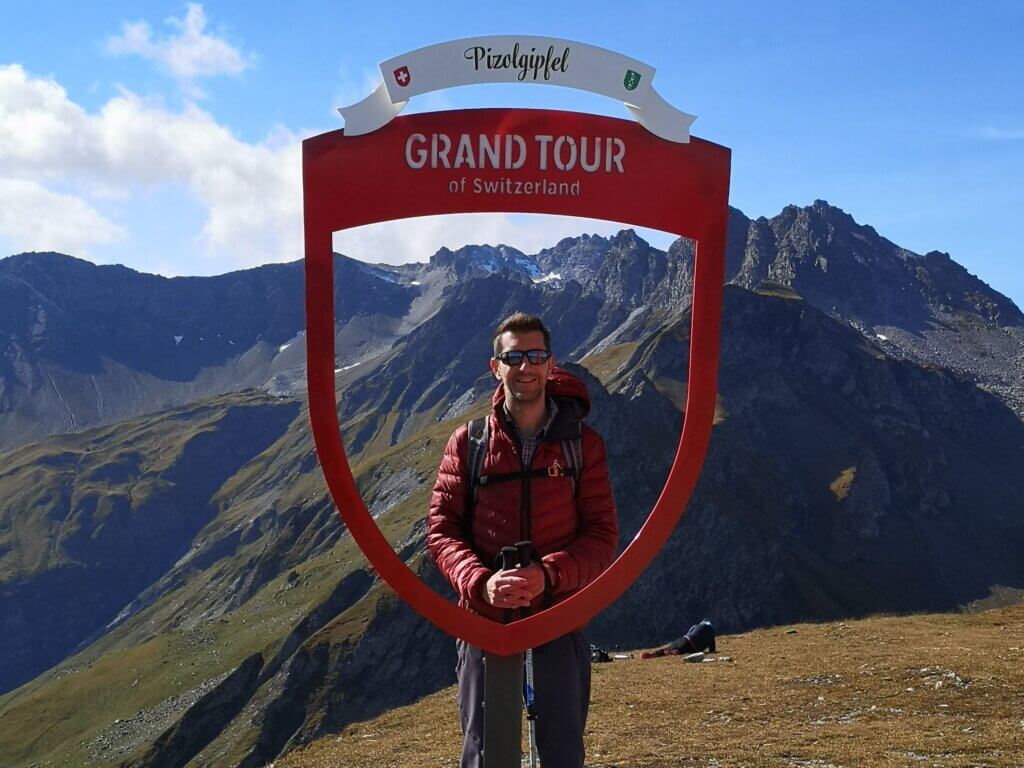
After university I went abroad for four months to America to improve my English, and then spent one month travelling in a motorhome with a friend around Western America. During the trip, regardless of what activities we were doing, where the people we met were from, or how old they were, I felt quite at ease connecting with them. 15 years on, my girlfriend and I enjoy visiting other countries regularly to keep broadening our minds and absorbing different cultures. I’m also very fortunate to be able to mix with a multi-cultural group in my current role at Roche.
In terms of creativity, I’ve always enjoyed drawing. As a child I loved the fantasy art on the packaging of the “Masters of the Universe” toy line and the related comics. It wasn’t so much that I had a huge passion for, or an understanding of art – it was more the satisfaction of seeing something, transferring it onto paper, and people recognising what it was. The toy line was reproduced last year, which was quite nostalgic, so I purchased a few that now live in our cellar. They allow me to jump into those feelings I had as a child, escaping for a short time from the world as it is now.
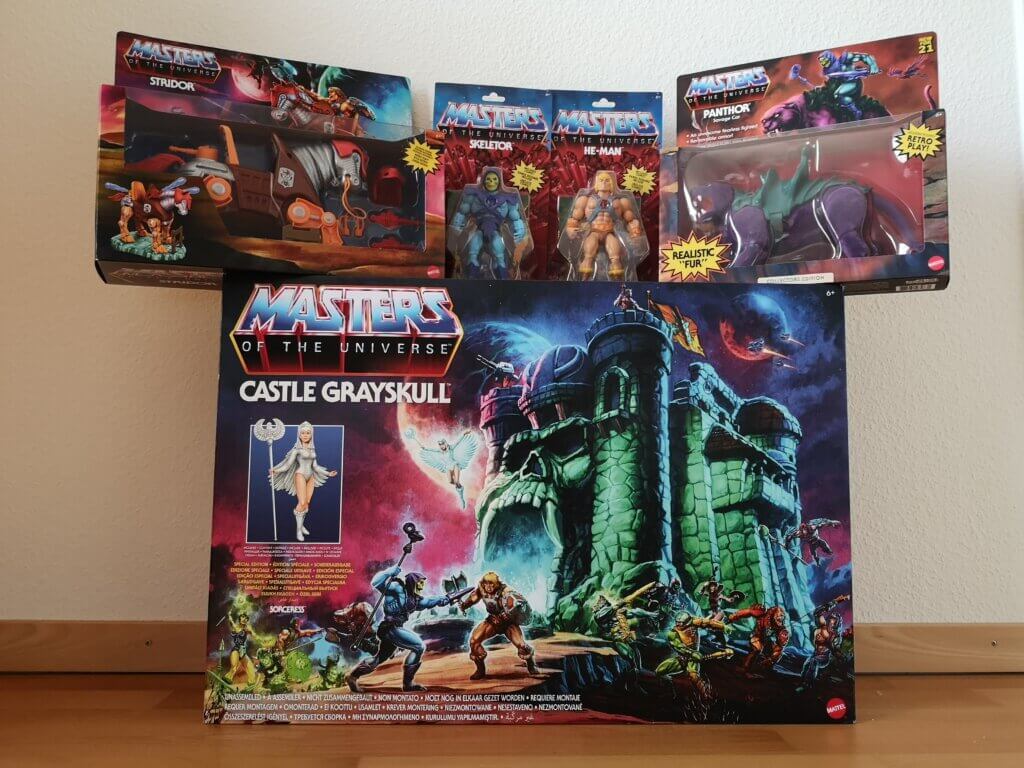
My favourite hobby though, is playing tennis – and it’s the spontaneity and lack of structure on court that I find most exciting. Tennis matches are unpredictable – you must be flexible enough to deal with the unexpected in the moment. It’s perhaps the opposite of my risk-based work in the MedTech industry! The weather, your competitors, the mood of the day, your condition; these are all moving factors that affect the outcome.
I picked up my first tennis racket at eight years old, and now as an adult I play Interclub First League as an active player (which means there isn’t an age category) – this allows me to play amongst the younger guys. We’ve played together for 20 years and have a great team spirit.
The sport allows me time to completely switch off from work because the game demands my total focus on court. I still get nervous before a match, but it’s a positive nervousness – like an adrenalin rush – because you know that nothing of great significance can happen. You simply win or lose, and both outcomes are fine. I have a great time every time I’m on court regardless of the result.
Does your ability to cope with pressure on the tennis court translate to your working life?
As some of my previous roles as a project manager, naturally I’ve experienced moments where parts of the project didn’t turn out as planned. In these circumstances, I needed to report into my superiors and come up with solutions. What I find helps in these situations is to firstly, not take things too personally. Accept that it’s the project situation; problems arise and it’s not about blame, it’s about overcoming the challenges. And secondly, it helps to be as best prepared as possible; to be focused on what is really necessary, and to present your findings in an understandable way. Collaboration before these big meetings is also important – for example, getting opinions from my manager and peers on the right items to share.
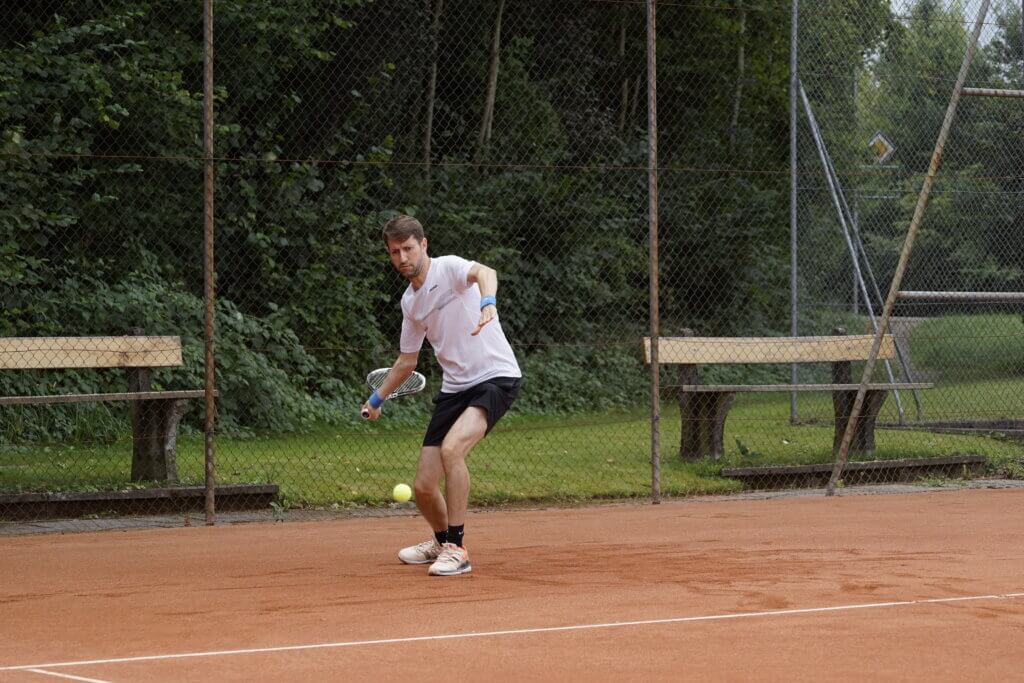
Despite ample preparation though, when I’m in a high pressure moment, at the boardroom table, of course I get a little nervous. The “match” begins, I try to stay calm (even if its just externally), perform what I prepared, then we look for solutions as a team.
In my 35 years of playing tennis, I’ve lost many matches. With that, you learn that you don’t only win in your life (which is obvious, but it can be hard). It’s part of the game and part of life. And learning to deal with this in a positive way certainly helps me navigate the more challenging situations at work.
Speaking of challenges – what are some of the key challenges that our customers will face over the coming years in MedTech?
A key challenge for the industry will be how to efficiently develop medical devices (be it an auto-injector, a patch pump, or a combination device), that enable users to manage their condition themselves, without a visit to the doctor – which will improve patient accessibility to healthcare solutions and create cost efficiencies for healthcare organisations.
A hurdle that arises when it comes to trying to empower patients however, is that it can be hugely difficult to train patients on the correct home use of their devices – depending on their age and physical / mental ability. To overcome this challenge, as an industry we will have to place greater emphasis on user research and patient observation as early as possible in the development phase, to help inform our designs. Our ultimate purpose is to improve the lives of patients – so we need to ensure that we’re creating usable solutions that achieve this goal.
And finally, what kind of impact do you want to make on the industry?
I’m very task-driven and have always set myself daily, weekly, and monthly goals to complete – be it a goal relating to a project task or building relationships with people. So, I think for me, when I look back, I would want to see that I achieved meaningful goals – that I did what I needed to do and did my best.
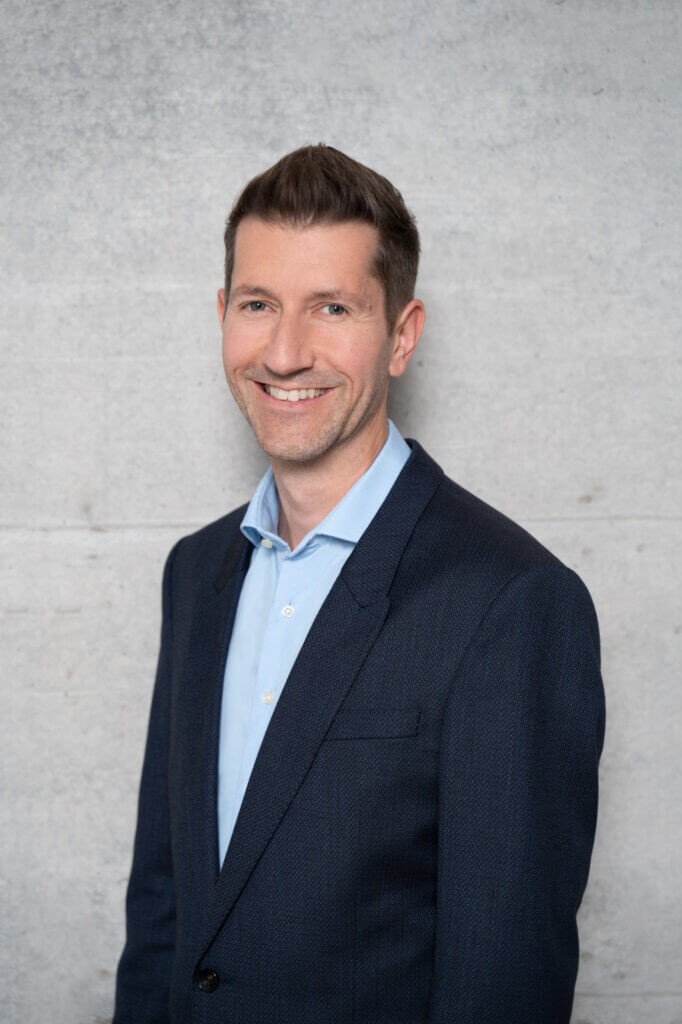
Connecting with people is also important to me. I’m quite open and try to learn from every person I work with. I’ve been lucky to have always had excellent bosses, but I was very inspired by one in particular. He was really quiet, but really focused. If you found yourself in a room where the topic being discussed was problematic or challenging and he entered, he would bring with him a breath of fresh air. Everyone – even the most stressed colleagues, would immediately feel reassured, calmed down, and be ready to focus on solving the problem together. I found this so impressive. And whilst I don’t think you can learn this type of skill; he has certainly inspired me to try!

